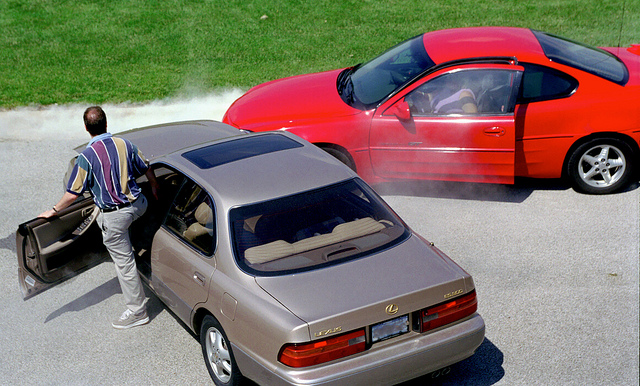Los pasajeros lesionados en accidentes de automóvil tienen derecho a recibir una indemnización por sus pérdidas. No importa si el conductor del vehículo en el que viajaba el pasajero o el conductor de otro vehículo fue culpable por el accidente. De hecho, una serie de pólizas de seguro de automóvil puede estar disponible para compensar un pasajero herido. Por supuesto, en algunas pólizas de seguros, el pasajero podrá ser una persona excluida. Por ejemplo, una póliza de seguro de automóviles con una cláusula de exclusión para pasajeros no cubriría el pasajero.
En la mayoría de los casos, existe un seguro que cubre las pérdidas del pasajero. En una colisión de dos coches, en la que el pasajero se monta en un automóvil A, las pólizas de seguro de automóvil puede estar en efecto para los conductores de ambos coches A y B. Además, el pasajero también puede estar cubierto por su propio seguro. Si el coche B no estaba asegurado, en la mayoría de los estados, la compañía de seguros del vehículo A tiene una cobertura de conductores sin seguro para el pasajero. La compañía de seguros de un pasajero en el vehículo A tiene exceso de cobertura para el pasajero.
Si un conductor y su pasajero desea demandar a otro conductor por negligencia en un accidente automovilístico, el conductor y el acompañante pueden utilizar el mismo abogado. Mientras los intereses del conductor y del pasajero no son adversos, la doble representación está bien. Sin embargo, si sus intereses son adversas, que no puede ser representado por el mismo abogado, a menos que la naturaleza de sus intereses son tales que el abogado no crea que afectará a los deberes del abogado para el pasajero y conductor y cada uno de ellos da su consentimiento tras una consulta inicial. Obviamente, un abogado no puede representar simultáneamente un conductor y un pasajero en accidente de automóvil si el pasajero es intenta hacer una reclamación de negligencia contra el conductor.
El pasajero también puede demandar a su agente de seguros, quien no pudo obtener la cobertura por automovilistas sin seguro para un conductor como el agente estaba contractualmente obligado a hacer. El pasajero podrá alegar que el incumplimiento del deber del agente le causó sufrir directamente como un tercer beneficiario de la obligación incumplida.
Para estar informado sobre los derechos de conductores y pasajeros en caso de un accidente haga una consulta inicial con uno de los abogados de accidentes de auto en San Diego o llámenos al (619) 239-9750





